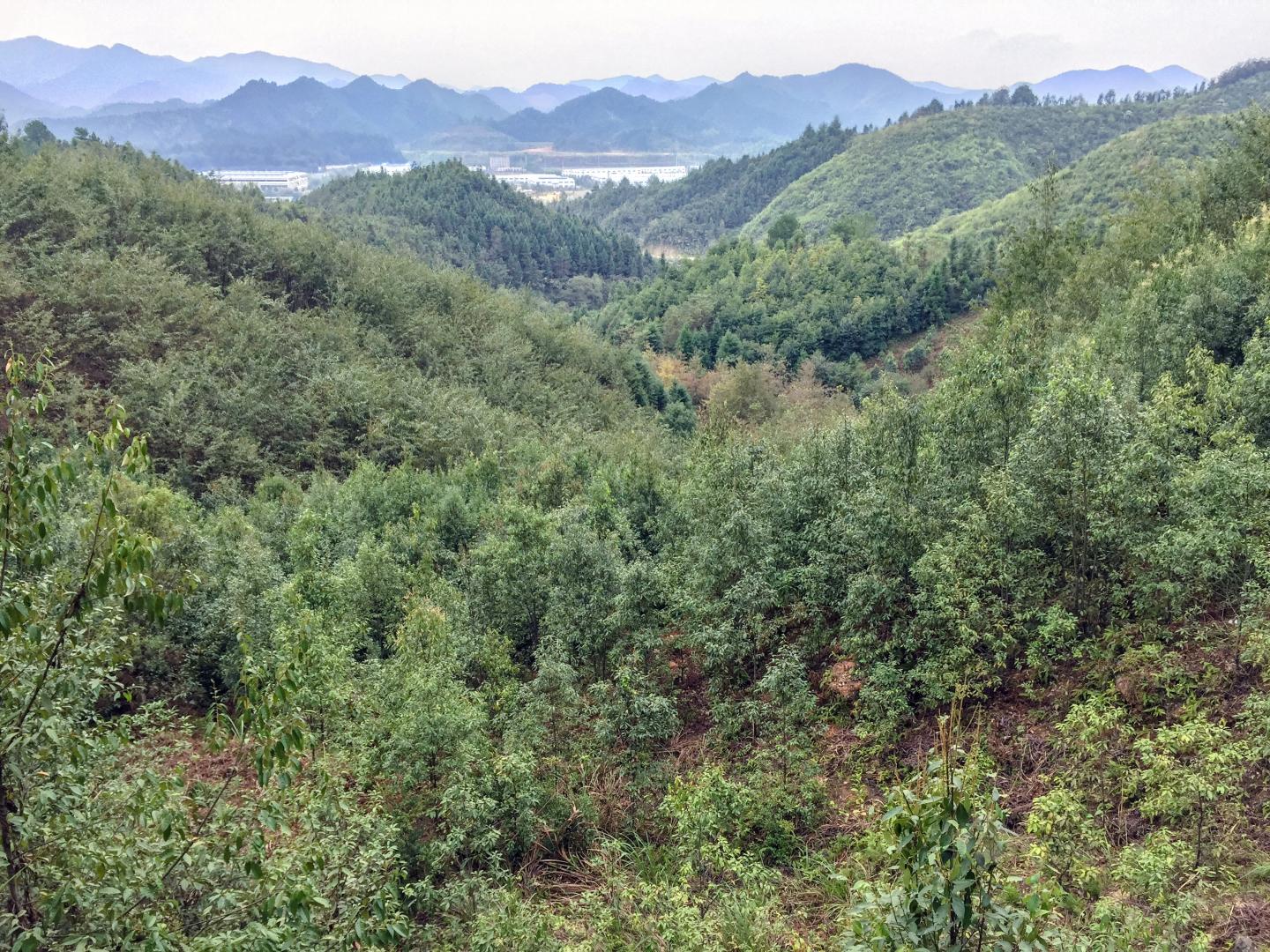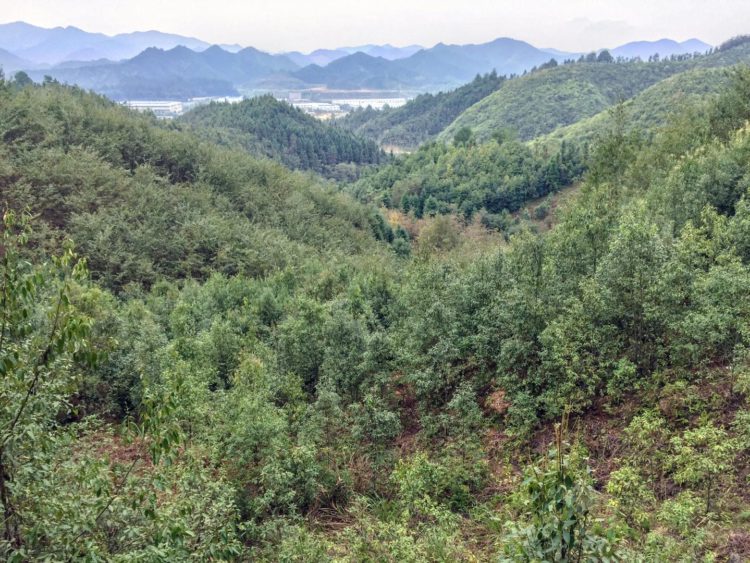
Credit: Yuanyuan Huang
The forest biodiversity experiment BEF-China began in 2009 with the collaboration among institutions in China, Germany and Switzerland and is one of the world’s biggest field experiment. In the subtropical forests in southeastern China the international team planted over 500 plots of 670 square meters of land with 400 trees each – with each plot receiving between one and 16 tree species in various combinations. The researchers simulated both random and directed species extinction scenarios and analyzed the data.
Directed loss of species reduces productivity
After eight years, directed species loss in species-rich forest ecosystems, in which evolutionary distinct species had higher extinction risks, showed much stronger reductions in forest productivity than did treatments that were subject to random species loss. “These findings have significant implications for biodiversity conservation and climate mitigation, because more productive forests also removed more carbon dioxide from the air,” says Bernhard Schmid, professor at the Department of Geography of the University of Zurich (UZH) and last author of the study.
Diversity alone does not protect against losses
“Our results suggest that species loss can severely hamper ecosystem functioning already at high species richness, when many species still remain in the ecosystem. It challenges the decade-long assumption derived from studies based on random species loss,” says Schmid. This assumption is that species loss from high-diversity communities would have only little impact on ecosystem functioning, because the remaining species could take over the functions of extinct species due to species redundancy.
Extinct species missing from the network
Why could directed species loss lead to such strong productivity reduction? “We think two processes associated with directed species loss might lead to the results. When species loss is directed, we may lose the most functionally distinct species first, if that functionally distinctiveness is also the cause of extinction,” explains first author of the study Yuxin Chen, former post-doc at UZH and now associate professor at Xiamen University in China. “Species do not live independently, but participate in complex networks of species interactions. Losing species can change these interaction networks. The loss of species interactions contributed significantly to the observed results.”
China responds with new laws
The ongoing impacts of a severe coronavirus epidemic this winter has prompted China to speed up biosecurity legislation and elevate it to a national security issue. The biosecurity law would cover various areas including conserving biodiversity. “Our research is grounded in one of the diversity hotspots in China. The findings are timely for supporting the legislation of biosecurity,” says Keping Ma professor at the Chinese Academy of Sciences and co-founder of the BEF-China experiment. “Diversity loss from species-rich forests could also increase the risk of pest and disease outbreaks. Some other research teams are studying this issue”.
###
Media Contact
Bernhard Schmid
[email protected]
41-446-355-205
Original Source
https:/
Related Journal Article
http://dx.





